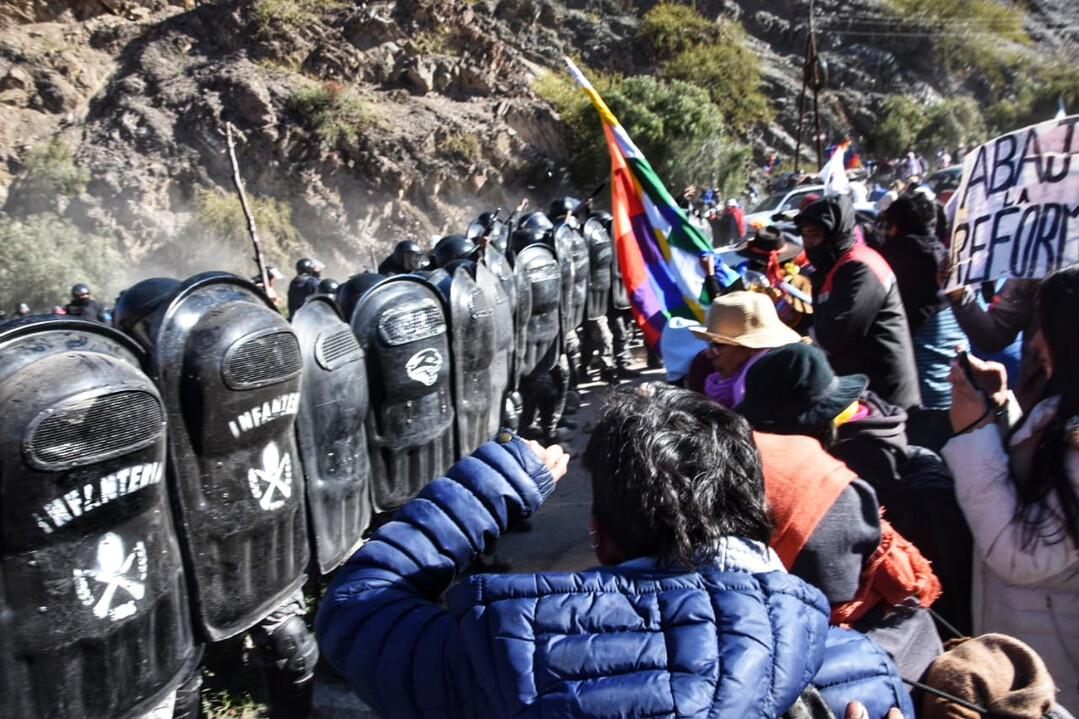
BUENOS AIRES, Argentina – Amnesty International has strongly called for justice for victims of state violence that occurred during the repression of protests against provincial constitutional reform in Jujuy, Argentina, in 2023. Two years after the protests, victims continue to suffer without proper apologies or reparations. Amnesty International visited Jujuy on May 28 and 29, demanding that authorities ensure justice, reparations, and measures to prevent recurrence.
Background of the 2023 Jujuy Constitutional Reform and Protests
In 2023, a constitutional reform initiated by Jujuy Governor Gerardo Morales sparked widespread protests. This reform included provisions that aimed to strengthen the provincial government's powers and weaken checks and balances. Notable reform contents included:
Restructuring of Government and Strengthening of Executive Power: This weakened existing checks and balances, leading to an excessive concentration of power in the governor's hands.
Changes to the Electoral System: Criticisms arose that changes to the electoral system could unfairly favor certain political factions.
Restrictions on Freedom of Expression: Provisions were included that limited the rights to protest and assembly, raising concerns about infringements on citizens' fundamental rights.
Deepening Exploitation of Indigenous Communities: Linked to the lithium mining boom, provisions were included to facilitate access to and development of Indigenous land and resources, threatening the traditional rights and livelihoods of Indigenous communities. Indigenous peoples strongly criticized these reforms as violating the principle of 'free, prior, and informed consent.'
Protests against these constitutional reforms spread widely, involving various civil society organizations, including teachers' unions, Indigenous communities, left-wing parties, and dissident factions within the Jujuy Justicialist Party. They strongly opposed the governor's unilateral constitutional amendments and attempts to push through legislation limiting Indigenous autonomy rights. In particular, despite existing constitutional provisions granting provincial governments, not the federal government, ownership of natural resources like lithium, moves to open the door to central government intervention through omnibus bills further amplified the concerns of Indigenous and local residents.
Protest Repression and Human Rights Violations
The Jujuy provincial government used excessive and arbitrary physical force, including tear gas and rubber bullets, to suppress the protests. As a result, numerous protesters were injured, including citizens like Joel Paredes, who was participating in the protest by playing drums. According to local media reports, at least 70 people were injured and over 30 were detained, indicating severe human rights violations. Photos and videos of people bleeding and collapsing on the ground quickly circulated from the scene, sparking international outrage.
Based on investigations of on-site photos and video evidence, Amnesty International pointed out that provincial authorities and police violated international human rights law. Specifically, the following concerns were raised:
Lack of Free, Prior, and Informed Consent: The constitutional reform process proceeded without sufficient consent from affected parties, including Indigenous communities.
Infringement of the Right to Peaceful Assembly and Protest: Peaceful assemblies were unjustly dispersed, and the repression of road blockade protests was carried out in an unjustifiable manner.
Unlawful and Arbitrary Use of Excessive Force: More physical force than necessary was used during protest repression, leading to casualties.
Inadequate Support for Victims and Restricted Access to Medical Services: Injured protesters had difficulty accessing appropriate medical assistance.
Arbitrary Detention, Criminalization of Protesters, and Cruel, Inhuman, or Degrading Treatment: Many protesters were unlawfully detained and criminalized, and some even subjected to cruel treatment.
Lack of Ongoing Oversight and Accountability for Police Actions: No transparent investigation and accountability for the actions of police involved in protest repression have been carried out.
Current Situation and International Demands
As of May 2025, the Jujuy provincial government continues to suppress dissenting voices against the constitutional reform, and justice for victims remains elusive. Amnesty International expresses grave concern over this situation and strongly urges the Argentine government to conduct a thorough and independent investigation into the human rights violations that occurred during the protest repression, in accordance with international human rights standards. It also demands that those responsible be held accountable with appropriate penalties and that victims receive adequate reparations. Furthermore, fundamental efforts are needed to prevent similar human rights violations in the future, including revising relevant laws and procedures and strengthening human rights training for police. This incident will be a crucial test for Argentina's democracy and respect for human rights, and the international community is closely monitoring the situation in Jujuy.
[Copyright (c) Global Economic Times. All Rights Reserved.]




























